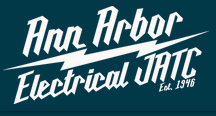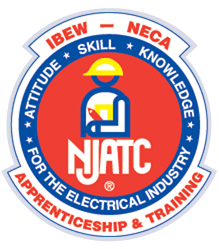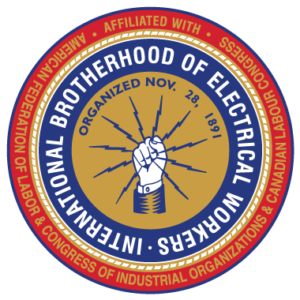If you want to become an electrician and you live in Michigan, you have a variety of educational programs to choose from.
Some programs can be completed in two years or less and lead to an associate degree, diploma, or certificate.
Apprenticeships that combine classroom instruction with on-the-job paid training are also available and can be completed in four or five years.
To help you choose the format that best meets your schedule, budget, and learning style, on this page, we have compiled information about the top electrician schools in Michigan.
1Ann Arbor Electrical JATC

About the School
Ann Arbor Electrical JATC prepares students for careers in the electrician trade.
Through apprenticeships that combine classroom education with on-the-job training, students can earn a living while building a career and receiving college credits.
Apprentices learn the skills needed for careers as productive journeyman electricians licensed by the state of Michigan.
Applicants must be at least 17 years of age when they apply and at least 18 by the time the selection and indenture processes start.
To apply for the five-year Commercial Program, you must reside in the jurisdiction of IBEW Local #252 for 12 months preceding.
Applicants must be high school graduates or hold a G.E.D. and they need a passing grade for one credit year of high school algebra or one year of college algebra.
An aptitude test is also required as part of the admissions process.
Courses Offered
The following programs are offered by Ann Arbor Electrical JATC:
- Five-year Commercial
- Four-year Voice Data Video
- Three-year Residential
Contact Information
- Address: 13400 Luick Drive, Chelsea, Michigan 48118
- Phone: (734) 475-1180
- Website: https://www.aaejatc.org
2Flint/Saginaw Electrical JATC

About the School
Flint/Saginaw Electrical JATC offers training programs for future Journeyman Wireman Electricians and members of the International Brotherhood of Electrical Workers Local Unions 557 and 948.
Apprenticeships that allow students to earn a salary while they learn the skills needed for the electrician profession are available.
Courses Offered
The electrical apprenticeship is a five-year program that allows trainees to attend classes twice per month and work with electrical contractors.
Apprentices earn an hourly wage that increases annually.
Applicants need a high school diploma or GED certificate to qualify for the apprenticeship.
An aptitude test and an interview with the committee are also part of the admissions process.
The aptitude test consists of basic Algebra and English comprehension and takes three hours to complete.
Programs start once per year.
Contact Information
- Address: 5209 Exchange Drive, Flint, MI 48507
- Phone: (810) 720-0583
- Website: http://www.fsejatc.com
3NorthWestern Technological Institute

About the School
NorthWestern Technological Institute provides hands-on training programs that prepare students for employment in skilled trades occupations.
The school provides a Heating and Cooling program that is designed to be completed in only ten and a half months.
The program covers Electrical Theory and Application for HVACR.
This course includes 80 hours of training and takes five weeks to complete.
During this time, students learn about the principles of electrical theory and application, among other subjects.
The curriculum covers topics such as basic electricity, schematics, electrical meters, components, motors, control devices, and more.
The first step in the admission process consists of a meeting with an admissions advisor.
Potential students will get to tour the school, complete a pre-application, and discuss the details of the program.
Applicants will also sit down with financial aid to consider all their payment options.
Contact Information
- Address: 24800 Northwestern Hwy, Southfield, MI 48075
- Phone: (248) 358-4006
- Website: https://northwesterntech.edu
4Southeast Michigan Construction Academy

About the School
Southeast Michigan Construction Academy offers apprenticeship programs in the electrical, carpentry, welding, and HVAC industries.
The programs are registered with the Department of Labor.
Students who attend the apprenticeship earn portable, stackable, and nationally recognized NCCER credentials.
Southeast Michigan Construction Academy is accredited by the National Center for Construction Education & Research.
NCCER credentials are recognized nationwide.
Most programs are four years long and require apprentices to attend school two nights per week for three hours.
Courses Offered
The core curriculum covers topics on:
- Basic Safety
- Introduction to Construction Math
- Introduction to Hand Tools
- Basic Rigging
- Basic Employability Skills
- Introduction to Materials Handling
- And more
The electrical curriculum includes classes on Electrical Safety, Electrical Theory, Device Boxes, Hand Bending, Basic Electrical Construction Drawings, Motors, Overcurrent Protection, Distribution Equipment, and many other topics.
Contact Information
- Address: 31800 Sherman Ave Madison Heights, MI 48071
- Phone: (248) 298-3600
- Website: https://semcaschool.org
5International Brotherhood of Electrical Workers

About the School
International Brotherhood of Electrical Workers- Local 692 represents electrical workers in some northeast counties of the lower peninsula of Michigan.
The association offers apprenticeships and continuing education programs for workers in the electricity field.
Courses Offered
The following apprenticeships are provided by the International Brotherhood of Electrical Workers:
- Inside Wireman- workers in this profession install power, lighting, controls, and other electrical equipment in commercial and industrial buildings; the program is five years long
- VDV Installer Technician- electrical workers who install circuits and equipment for telephones, computer networks, video distribution systems, and other low voltage systems
To qualify for admission to an apprenticeship, applicants must meet the following requirements:
- Be at least 18 years of age or 16 to qualify for the School-to-Registered Apprenticeship program
- Have a high school education, a GED, or a two-year associate degree or higher
- Obtain a qualifying score on an aptitude test.
Contact Information
- Address: 1300 W. Thomas Street, Bay City, Michigan 48706
- Phone: (989) 684-4510
- Website: https://www.ibew692.net
6Detroit Training Institute of Technology
About the School
Detroit Training Institute of Technology provides construction training programs that emphasize green technology.
The program combines classroom instruction with hands-on exercises.
The instructor team includes journeymen, masters, and licensed builders.
Detroit Training Institute of Technology is certified by the State of Michigan Department of Energy Labor and Economic Growth.
Courses Offered
The following courses are available at the Detroit Training Institute of Technology:
- Building Maintenance with Custodial Services
- Electrical Wiring Residential
- Green Building Construction
- Heating and Cooling
- And more
The Electrical Wiring Residential program can be completed in only four months and covers the basics of wiring in residential settings.
Students learn how to follow the National Electric Code.
Those who complete the program earn a certificate and the knowledge needed for a career in the electricity field.
The Electrical Wiring Residential program covers several learning modules, such as:
- Lighting Branches
- Fans
- Receptacles
- Repairing and Installing Service Panels
- Special Purpose Outlets
- 2008 National Electric Code
Contact Information
- Address: 14701 Harper Ave, Detroit, Michigan 48224
- Phone: (313) 527-9740
- Website: http://www.dtitschool.com
7Grand Rapids Community College

About the School
Grand Rapids Community College offers more than 145 career, transfer, and certificate programs that cover a variety of academic areas.
The college is accredited by the Higher Learning Commission.
Courses Offered
The college’s catalog includes a variety of programs, including:
- Construction Electrician, Certificate of Completion
- Electrical Controls/ Mechatronics Certificate
- Electronics Engineering Technology Certificate
- Electronics Engineering Technology Associate in Applied Science
The curriculum and the number of credits required for graduation vary depending on the program and the credential it leads to.
The Construction Electrician pathway that leads to a Certificate of Completion lasts 18 weeks.
Students attend classes 34 hours per week, Monday thru Thursday from 7:30 a.m. to 4 p.m.
The courses included in the program cover topics on:
- Introduction to hand and power tools
- Basic communication and employability skills
- Basic safety
- Basic test equipment
- Conductors
- Wiring for commercial, industrial and residential
- And more
Tuition for the Construction Electrical Apprentice program is $796 for resident students.
The facility’s maintenance fee is an additional $60.
Contact Information
- Address: 143 Bostwick Avenue NE, Grand Rapids MI 49503-3295
- Phone: (616) 234-4000
- Website: https://www.grcc.edu
8Kellogg Community College

About the School
Kellogg Community College offers training programs for Industrial Trades and Workforce Solutions at its Regional Manufacturing Technology Center in Battle Creek, MI.
The facility is built like a real industrial facility and includes hundreds of working machines, technical tools, and equipment.
Kellogg Community College is fully accredited by the Higher Learning Commission.
Tuition per credit hour is $127.50 for resident students.
Fees sum up to $27 and bring the total cost to $154.50 per credit hour.
Scholarships are available for students who qualify.
Courses Offered
Kellogg Community College offers a variety of training programs, including:
- Industrial Electricity and Electronics
- Industrial Technology
- Industrial Trades
- Renewable Energy
- And more
The Industrial Electricity and Electronics pathway can lead to the following credentials:
- Industrial Electricity and Electronics Certificate
- Associate in Applied Science: Industrial Electricity and Electronics
- Industrial Trades Certificate
- Associate in Applied Science: Skilled Trades
The Industrial Trades Certificate program is not eligible for financial aid.
The number of credits required for graduation varies depending on the credential.
An Industrial Trades Certificate requires 25 credits, while an Associate in Applied Science: Industrial Electricity and Electronics requires 60 credits.
The program consists of short modules that compose larger units.
These modules are often less than one credit each and can be completed by students at their own pace.
Contact Information
- Address: 450 North Ave. Battle Creek, MI 49017
- Phone: 269-965-3931
- Website: https://kellogg.edu
9MIAT College of Technology
About the School
MIAT College of Technology offers a variety of training programs that prepare students for employment in high-demand industries.
The college is accredited by the Accrediting Commission of Career Schools and Colleges.
Courses Offered
The college’s catalog includes the following programs:
- Energy Technology
- Industrial Maintenance Technician
- Wind Power Technician
- Robotics and Automation Technology
- And more
The Wind Power Technician program can be completed in seven months and teaches students how to install, maintain, and repair the three major components of the turbine.
Students who attend this program learn skills such as:
- Tools and Professional Skills
- Precision Measuring and Rigging
- Materials, Processes, and Welding
- Inspection
- DC Electrical Theory
- AC Electrical Theory
- Climb and Rescue
- Hydraulics and Gears
- And more
The Energy Technology Degree program can be completed in 16 months and leads to an Associate of Applied Science Degree.
The programs combine classroom education with hands-on projects that prepare students for employment in dynamic industries.
After graduating from the Energy Technology program, students can seek employment as power plant operators, industrial mechanics, electrical repairers, field service technicians, solar installation technicians, and a variety of other related professions.
Contact Information
- Address: 2955 S. Haggerty Road, Canton, Michigan 48188
- Phone: 800-447-1310
- Website: https://miat.edu
10Monroe County Community College

About the School
Monroe County Community College offers a wide range of degree, certification, and education programs designed for students who want to earn dual credits, high school graduates, those who transfer from another college, and adults who want to change careers.
Tuition is $119.75 per contact hour for Monroe County Residents.
Out-of-district students pay $212.75 per contact hour.
Courses Offered
The Monroe County Community College catalog includes programs such as:
- Electrical Engineering Technology- a program that leads to an Associate Degree
- Renewable Energy Technology- Solar
- Energy/Wind Energy
- And more
The Electrical Engineering Technology program covers the theory and application of principles, procedures, and components used in modern industrial environments.
The program includes hands-on laboratory applications as well as classroom hours.
Graduates have the opportunity to transfer to nearby universities that offer a bachelor of engineering technology degree or a bachelor of applied science degree.
They can do so by spending two years at the community college and two years at the university.
Students who are at least 25 years of age can attend the college tuition-free to earn a degree or an eligible skill certificate through Michigan Reconstruct.
Contact Information
- Address: 1555 S. Raisinville Rd. Monroe, MI 48161
- Phone: 734.242.7300
- Website: https://www.monroeccc.edu
Regional Salary in Michigan
| Region | Employed | Avg. Annual Salary | Avg. Hourly Pay | Top 10% Annual Salary | Bottom 10% Annual Salary |
|---|---|---|---|---|---|
| Ann Arbor, MI | 670 | $74,960 | $36.04 | $97,200 | $41,230 |
| Battle Creek, MI | 180 | $67,330 | $32.37 | $84,780 | $38,690 |
| Bay City, MI | 230 | $62,550 | $30.07 | $80,690 | $38,960 |
| Detroit-Warren-Dearborn, MI | 11,540 | $69,300 | $33.32 | $99,930 | $39,120 |
| Flint, MI | 760 | $66,980 | $32.2 | $93,500 | $37,140 |
| Grand Rapids-Wyoming, MI | 2,950 | $61,860 | $29.74 | $83,870 | $37,580 |
| Jackson, MI | 280 | $69,330 | $33.33 | $106,930 | $37,420 |
| Kalamazoo-Portage, MI | 740 | $64,490 | $31 | $92,170 | $37,450 |
| Lansing-East Lansing, MI | 1,270 | $65,090 | $31.29 | $83,810 | $38,780 |
| Midland, MI | 220 | $51,510 | $24.76 | $77,920 | $30,890 |
| Monroe, MI | 150 | $67,480 | $32.44 | $98,100 | $37,700 |
| Muskegon, MI | 480 | $61,500 | $29.57 | $96,010 | $36,070 |
| Niles-Benton Harbor, MI | 240 | $65,710 | $31.59 | $105,270 | $37,940 |
| Saginaw, MI | 370 | $63,680 | $30.61 | $83,650 | $37,690 |
* Employment conditions in your area may vary.
Final Thoughts
Now that you have read our list of top electrician schools in the state of Michigan is time to continue the research and choose the program that best fits your needs.
This is an important step, so take your time and make an informed decision.






